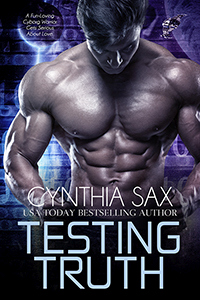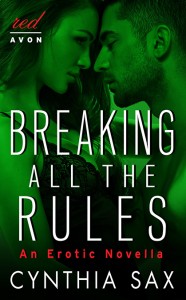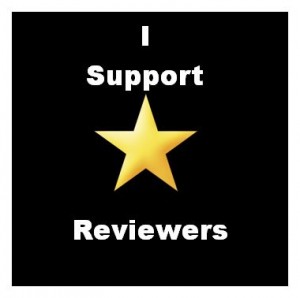Pantsing, Plotting and Plotzing

There are three types of writers.
Plotters
These are writers who know the entire story before they sit down to write that first line. They are more likely to have elaborate plot diagrams and character interviews and other wonderful things. They know the goals, motivations, conflicts, where the turning points are, what type of words their heroine would use in sentences.
Pantsers
These are writers who write by the seat of their pants. They sit down to a blank screen, knowing nothing or only knowing that first scene. Their characters lead them. They type as quickly as they can and try to keep up with their characters.
Plotzers
Plotzers are a combination of the first two writers. They might know their characters but they don’t know the plot. They might have one line about every chapter but not much else. They might plot and then throw out that plot halfway through the first draft.
Which Type Of Writer Is Best?
There is no way of knowing, by reading a story, which type of writer wrote the story. There are best selling plotters, best selling pantsers, best selling plotzers. There are pantsers who write the most intricate 10 story series. There are plotters who only write standalone stories.
There ARE a gazillion books on plotting or explaining how a pantser can become a plotter. IMHO…if a pantser can become a plotter, she was likely either truly a plotzer or a plotter OR something happened that caused her brain to change (some of my writing buddies say this can happen during menopause, for example).
I can’t plot. Or, more specifically, I can craft a plot but then the story doesn’t get written or it deviates wildly from that plot or it has zero magic. The magic is in the pantsing for me. I can’t seem to find it with plotting (other writers can ONLY find the magic with plotting).
Why aren’t there a gazillion books on pantsing? Because pantsing is very challenging to explain to another writer and pantsing is also often different for each writer. I see a movie in my head (it is like dreaming). Some writers hear only dialogue. Some writers see text.
The Trad World Is Designed For Plotters
One of the reasons pantsers attempt to become plotters is because the world doesn’t understand pantsing.
Agents and editors, especially those associated with the big New York Trad Publishers, ask for things like partials, for example. Partials consist of the first 3 chapters and a synopsis detailing the ENTIRE story. A pantser doesn’t have this unless she has written the entire story. I would make sh*t up and then go through the painful exercise of refining a plot I knew I’d never write. (This is one of the many reasons I’m so happy to be Indie now.)

Plotters Vs Pantsers And Writing Speed
Another reason pantsers attempt to become plotters is due to the myth floating around that plotters complete stories faster than pantsers.
That’s complete bullsh*t. There’s no correlation between the type of writer and writing speed. I, as a pantser, do one more draft than many of my plotting buddies but I also don’t take a week or more thinking about my plot and characters. It all evens out.
Do I throw away scenes? Yes, I do. But I learned things about my characters when I wrote those scenes. They weren’t wasted scenes. And, thankfully, words are plentiful. I don’t have to worry about running out of them. (grins)
Plotters throw out their diagrams after their books are published and that doesn’t seem to concern anyone.
Forcing yourself to write in an unnatural way also increases the likelihood you’ll get word constipation. If you’re not writing any words, you’re not completing stories quickly.
Which Type Of Writer Are You?
The best way to figure out which type of writer you are is to try a variety of writing techniques. Try plotting. Try pantsing. Try a combination of the two. Try different techniques. Read different books on crafting stories.
If you try 5 or 6 techniques and one way works best for you, use that technique until it stops working for you. Then consider going through the process again.

Stock Art Crafted By And Indirectly Purchased From: grandfailure
Pantsing And Craft
There’s a myth that pansters don’t need to learn craft (learning 3 act structure or GMC or turning points, etc). IMHO…I find it is the opposite for me. I need to know craft so fraggin’ well; I internalize it during the writing of the first draft. I also need to know it when my first draft doesn’t quite work. Maybe my structure is off. Maybe I have to look at my characters again.
Being a pantser is NOT a reason to ignore craft.
Do Whatever Works For You
Do whatever works for you. If a technique is working for you, if it makes you happy, pleases the muse, gets stories written, think before changing your technique.
If someone tells you there’s one ‘right way’ to write, smile and nod and then purge that feedback from your brain. They’ve found THEIR ‘right way’ for the moment and that’s awesome. I’m happy for them.
But their ‘right way’ might not be YOUR ‘right way’.
***
Subscribe To My Monthly Newsletter: http://tasteofcyn.com/2014/05/28/newsletter/
Testing Truth
A fun-loving cyborg gets serious about love.
***
Truth lives each moment as though it were his last. The cyborg warrior rushes into danger, teases beings he shouldn’t provoke, accepts every call of adventure he encounters.
When a prissy little human princess floats into the Rebel structure Truth is occupying, seeking a mercenary to assist her and her unusual entourage, he volunteers to be her warrior. She claims their assignment is dangerous, warns him he might not survive the task.
That is exactly the type of fun he has been seeking.
Princess Nanette of the planet Royaume must rescue her estranged brother from an enemy prison ship. That is her duty, and she has been trained to always place the needs of her planet and her subjects before her own. Nancy doesn’t have the freedom to indulge her passions for a certain dark-haired, gray-skinned cyborg. Not permanently and not publicly.
But she is unable to resist the warrior. Truth, with his laughing eyes, smiling lips, and rough hands, tempts her as no one else ever has. He could be her one fleeting act of rebellion before she’s matched with the powerful ruler her planet requires.
If they survive their current mission.
Their love is doomed. Their lifespans are at risk. This cyborg and his princess will need the help of every ally they have if they wish to see another sunrise.
Pre-order Now:
Amazon US:
https://www.amazon.com/gp/product/B08BTYN7TT
Amazon UK:
https://www.amazon.co.uk/gp/product/B08BTYN7TT
Amazon AUS:
https://www.amazon.com.au/gp/product/B08BTYN7TT
Apple Books:
https://books.apple.com/us/book/testing-truth/id1520415369
B&N:
https://www.barnesandnoble.com/w/testing-truth-cynthia-sax/1137237855
Kobo:
https://www.kobo.com/us/en/ebook/testing-truth
Smashwords:
https://www.smashwords.com/books/view/1029497
Topics: Writing Tips | Comments Off on Pantsing, Plotting and Plotzing
Whose Story Is It?
When I was solely a reader, I thought erotic romances were stories about two people (or more, if they were ménages), that the stories belonged to both the heroes and the heroines equally. Many times, the stories were written from both points of view so the characters must share the story, right?
Ummm…no. Once I started seriously (or semi-seriously as I’m never truly serious about anything – grins) studying and writing romances, I discovered that almost every story belongs to either the hero or the heroine, not to both characters. One character drives most of the action.
Just as it is difficult to have two people steering the same car, it is as challenging having two characters steer the same story. One character often takes the lead, stealing much of the focus.
In The Seen Trilogy (He Watches Me, He Touches Me, He Claims Me), the story is about Anna. She has the biggest emotional issues, takes the biggest emotional risks, changes the most. Sure, Blaine has issues (there’s a reason why romance heroes start stories as bachelors) but his issues tie into Anna’s.
In Breaking All The Rules, even though the story is told from Camille’s point of view, the story belongs to Nate. He changes the most during the story. His issues are the greatest. He has the most to lose.
I’m a pantser (a writer who writes by the seat of her pants, without any plot) but I usually know whose story I’m writing before I type the first sentence. The story belongs to the character who has to change, evolve, grow the most to achieve her or his happy ever after. Yes, the most messed up character gets the most page time. (laughs) Just like in real life, the drama mammas steal all of our attention.
Looking back at your favorite romances, which characters dominated the pages? Whose stories are they?
Nathan Lawford, Blaine Technologies’ chief financial officer, is known as the Iceman. He conducts his personal and business affairs without emotion, never allowing himself to become involved with anyone. When Nate sees something or someone he wants, he negotiates, paying a simple, set monetary price.
Now he wants Camille, the company’s green-haired intern.
Camille Joplin Trent never expected to be paid to pleasure the man of her dreams. She can’t quite figure out why this is a bad thing. Nate is intelligent, handsome, sophisticated, everything she’s ever wanted in a lover and never thought she could have. Their contract is for a month, thirty lust-filled days of making every sexual fantasy they’ve ever had come true. At the end of this month, the rules state their relationship will end.
Of course, Camille has never been good at following rules.
Buy Now At Amazon: http://www.amazon.com/Breaking-All-Rules-Erotic-Novella-ebook/dp/B00F2I2GXY
Buy Now At ARe: https://www.allromanceebooks.com/product-breakingalltherules-1453084-149.html
Topics: Writing Tips | Comments Off on Whose Story Is It?
Titles, Covers and Blurbs, Oh My
As we’re waiting to see the cover for Alien Tryst, my May 7th SciFi Erotic Romance novella releasing from Ellora’s Cave (I can’t WAIT – I LOVE seeing covers), I thought we’d talk about titles, covers and blurbs.
Publishers are responsible for titles, covers and blurbs. Some publishers don’t involve writers AT ALL in these decisions. These writers see their final titles, covers and blurbs when readers do. That’s why many writers haunt Amazon. (We also haunt Amazon because we obsess over rankings and reviews.-Grins)
I’m very fortunate because my publishers consult with me on all three. I submit my manuscripts with a working title. If my publisher likes this title, we keep it. If they don’t like it, they’ll ask me for more possible titles. I usually send ten titles for them to choose from. If they don’t like these titles, I’ll send them more. This is why I never mention my manuscripts’ titles before I receive a contract.
When I submit a manuscript, I also include a possible blurb in the query email. My publishers usually use this blurb as a base for the final blurb. They’ll often send the blurb to me before they post it on Amazon, B&N, ARe, etc. I act as quality control (ensuring names are spelled right, etc).
For the cover, I’ll fill out a cover request form either formally or informally. I’ll share information such as what the characters look like, the tone of the story (it was a dark and stormy night – grins), previous covers in the series (so all of the covers have the same look), and anything that I feel is key to the story. For example: Camille, the heroine of Breaking All The Rules, has green hair so I wanted green on the cover. Pink factors heavily in Flashes Of Me, which is why that cover is pink.
Sometimes I’ll see the cover before it is posted publicly. Sometimes I don’t. This depends on how close the release date is. There’s no time to redo the cover for Alien Tryst if we wish the story to release on May 7th. Unless something goes terribly wrong, the first cover I see for Alien Tryst will be the cover we use.
This is why choosing a publisher isn’t a casual task. Writers trust publishers with their titles, their covers, their blurbs, the three things readers see first.
Nathan Lawford, Blaine Technologies’ chief financial officer, is known as the Iceman. He conducts his personal and business affairs without emotion, never allowing himself to become involved with anyone. When Nate sees something or someone he wants, he negotiates, paying a simple, set monetary price.
Now he wants Camille, the company’s green-haired intern.
Camille Joplin Trent never expected to be paid to pleasure the man of her dreams. She can’t quite figure out why this is a bad thing. Nate is intelligent, handsome, sophisticated, everything she’s ever wanted in a lover and never thought she could have. Their contract is for a month, thirty lust-filled days of making every sexual fantasy they’ve ever had come true. At the end of this month, the rules state their relationship will end.
Of course, Camille has never been good at following rules.
Buy Now At Amazon: http://www.amazon.com/Breaking-All-Rules-Erotic-Novella-ebook/dp/B00F2I2GXY
Buy Now At ARe: https://www.allromanceebooks.com/product-breakingalltherules-1453084-149.html
Topics: Writing Tips | Comments Off on Titles, Covers and Blurbs, Oh My
I Support Reviewers
I support your right to post honest reviews, including one star reviews. You’re one of my readers, you have an opinion and I respect your right to share it. Heck, I admire you for sharing it. That takes courage. (Freedom of speech, baby – I live it and love it)
I don’t care which name you attach to your review. If you feel more comfortable reviewing as Anonymous, review as Anonymous. Personally I’d choose a more colorful pen name (The Pink Unicorn Of Love) but hey, whatever floats your boat. (grins) You respect my need for privacy and I extend to you the same respect.
I’ll address some common questions I’ve received.
Q. I hear reviews help writers but I don’t feel comfortable writing them. Am I a bad reader?
Yes, you’re a bad, bad reader and you must be punished. Assume the position while I ask one of my hunky heroes to discipline you. Oh, Officer Drake…
LOL
Seriously… talking about the books you love helps writers. There are a zillion ways to talk about books. Writing reviews is merely one of these ways. I’ll often post on social media that I’m reading a certain book. I don’t say anything more, allowing my reading buddies to decide for themselves whether or not they want to read that book.
Q. I didn’t like one of your stories. Will you hate me forever?
Will you hate me forever for writing a story you didn’t like? (big hugs) My bestest buddy in the world hasn’t liked any story I’ve ever written (she doesn’t like erotic romance) and I still love her to bits.
Every story I write is different. Every character I write is different. I don’t expect you to like every story. I’d be alarmed if you did. That might be an indication that I’m not trying different things. Either that or you’re as nuts as I am. (grins) If that’s the case, you’re destined to be my best buddy forever.
Q. Do negative reviews make you angry?
I don’t like disappointing any reader. I don’t think any writer does. Your time is precious and you gifted that time to me. I want you to be happy.
But I won’t ever be angry with you if you write a negative review. UNLESS you’re mean to my readers. I’m super protective of my reading buddies. They’re part of my family. Yeah, I get all mamma bear about my readers.
Q. I posted a one star review of your story and now I’m receiving mean comments/emails. Are you responsible for this?
If you receive mean comments/emails because you posted a one star review of one of my stories, PLEASE contact me ! I’ll defend you and talk to the people involved.
I can assure you that the reader isn’t a member of my street team. We cause a happy, upbeat, super positive type of chaos in Romanceland (if someone leaves a comment with a very bad pun, she or he might be a street team member – grins). No negative energy!
Q. I don’t agree with a review. What do I do?
Please respect the reviewer’s opinion. Writers often say that when a story is published, it no longer belongs to the writer, it belongs to the reader. Every reader reads a different story because we bring our own experiences into this story.
If you disagree, you can post your own review. There’s no need to directly address the previous review (this might make that reviewer feel bad and no one should feel bad about reading erotic romance). Simply offer other readers a different view of the same book. I LOVE reading these types of reviews.
If you ever have any questions about reviews, my stories or anything else (I’m an expert in all things Nutella also – grins), please send me an email !
Topics: Reviews | 2 Comments »
Keeping Stories Simple
The first romance story I ever completed writing was a 150,000 word, 500 page Regency romance called The Dragon Duke’s Protector. This story incorporated every plot you could ever imagine. There was a secret baby, a spy ring, a lady disguised as a governess, a self-made, half-Asian scarred bastard son of a Duke who somehow inherited the title, a haunted castle, a wicked stepmother and a wicked butler and a wicked maid and a wicked yet beautiful rival. There were pirates, missing gold, and murdered parents. You name the Regency plot. It was in there.
It was also a horrendous mess. My dear wonderful hubby often tells me if I ever become famous, he’ll rescue The Dragon Duke’s Protector from its place under the bed and have it published. But that’s a joke. This story will never see the light of day.
It was a first story and I made a very common first story mistake, a mistake I see in numerous contest entries while judging. I made the story too complicated, thinking I was being clever, thinking that complicated was a good thing.
Complicated is a bad thing, especially in romance. Every complication, every additional plotline or character or setting takes our attention away from the true reason we’re reading the story. We’re reading for the romance.
Of course, things should happen. No one wants to read a story about a couple drinking tea. But the focus of the story should always be on the romantic couple (or more if the story is a ménage). Every scene, every setting, every subplot, every secondary character should support the romance.
This is challenging to accomplish. Creating simple stories isn’t easy. Look at ballroom dancing. The professionals make it appear so effortless, as though anyone could do it, yet it has taken years, decades of hard work to create this illusion. A well-crafted romance is similar. It appears easy yet is dang difficult and never foolproof (This is why 1 star reviews happen. Some stories don’t work.).
I write a quick, messy, bare bones first draft of a story and then usually spend three or four drafts simplifying the story. Can I eliminate characters, making one character do the job of three? Do I have to change settings? Can I return to a setting I’ve already created? Does that oh-so-clever subplot serve the romance or should it be eliminated? Is my hero or heroine too complex? Can I reduce the heroine’s emotional baggage from twenty large trunks to one or two carryon pieces? All of this returns the focus to the romance, where it should be.
How do you simplify your stories?
Nathan Lawford, Blaine Technologies’ chief financial officer, is known as the Iceman. He conducts his personal and business affairs without emotion, never allowing himself to become involved with anyone. When Nate sees something or someone he wants, he negotiates, paying a simple, set monetary price.
Now he wants Camille, the company’s green-haired intern.
Camille Joplin Trent never expected to be paid to pleasure the man of her dreams. She can’t quite figure out why this is a bad thing. Nate is intelligent, handsome, sophisticated, everything she’s ever wanted in a lover and never thought she could have. Their contract is for a month, thirty lust-filled days of making every sexual fantasy they’ve ever had come true. At the end of this month, the rules state their relationship will end.
Of course, Camille has never been good at following rules.
Buy Now At Amazon: http://www.amazon.com/Breaking-All-Rules-Erotic-Novella-ebook/dp/B00F2I2GXY
Buy Now At ARe: https://www.allromanceebooks.com/product-breakingalltherules-1453084-149.html
Topics: Writing Tips | Comments Off on Keeping Stories Simple









